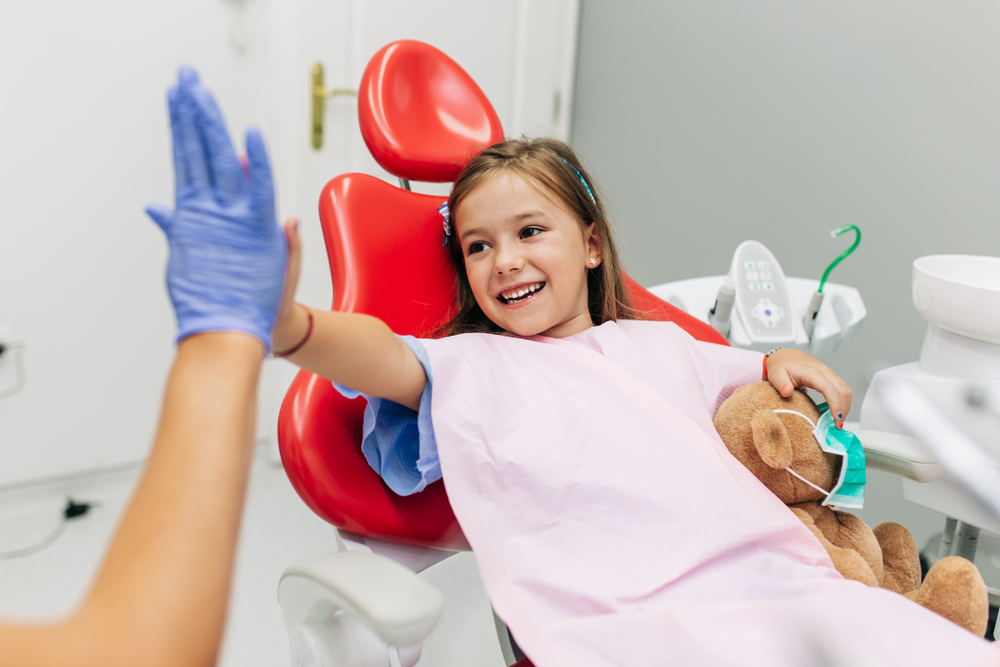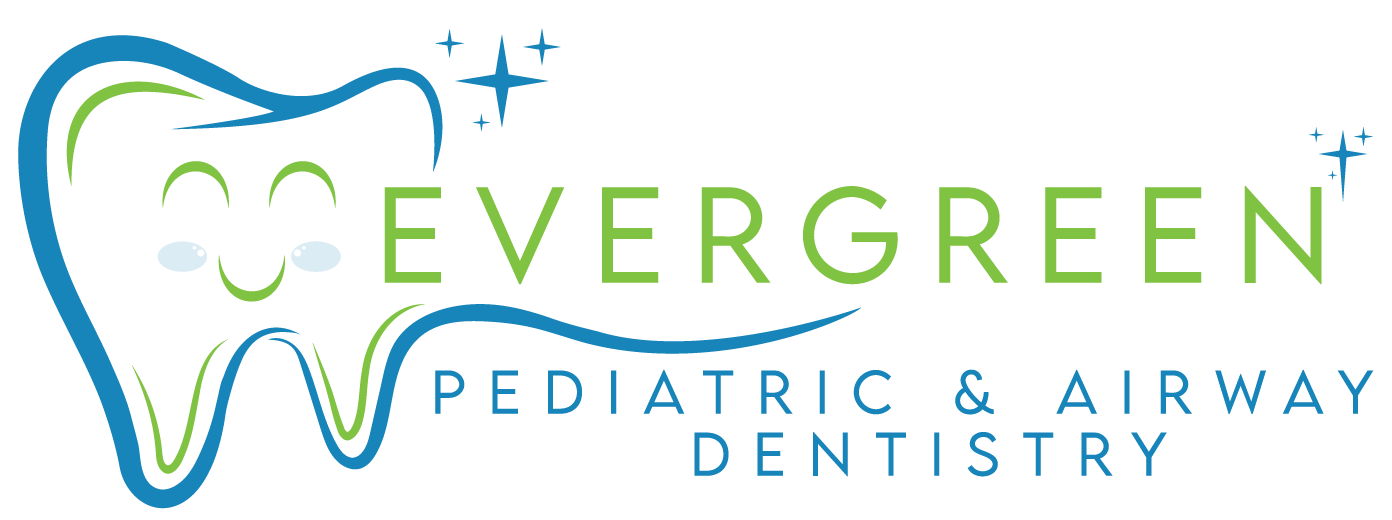When Is Sedation Dentistry Right for Your Child?
Many parents feel anxious about their child’s upcoming dental visit, especially when their little one struggles with fear or anxiety in medical settings. If you’ve ever watched your child become distressed at the thought of a dental appointment, you’re not alone. At Evergreen Pediatric & Airway Dentistry, we understand these concerns and offer sedation dentistry as a compassionate solution to help children receive the dental care they need in a calm, comfortable environment.
Sedation dentistry involves using safe, controlled medications to help children relax during dental procedures. This approach allows Dr. Susan and our team to provide thorough, quality care while ensuring your child feels at ease throughout their visit. Rather than forcing a frightened child through a traumatic experience, sedation dentistry transforms what could be a stressful situation into a manageable, even pleasant one.
The goal isn’t simply to make procedures easier for the dental team; it’s about preserving your child’s long-term relationship with oral healthcare. When children have positive experiences at the dentist, they’re more likely to maintain good oral health habits as they grow. This foundation of trust and comfort can benefit them for life.
Types of Sedation Available at Evergreen Pediatric & Airway Dentistry
Dr. Susan offers several sedation options, each carefully selected based on your child’s specific needs, age, and the complexity of their treatment. Understanding these options can help you make an informed decision about what’s best for your child.
Nitrous Oxide (Laughing Gas)
Nitrous oxide is the mildest form of sedation and often the first choice for children who experience mild to moderate anxiety. This colorless, odorless gas is mixed with oxygen and delivered through a small mask that fits over your child’s nose. Within minutes, most children feel relaxed and giggly, hence the nickname “laughing gas.”
The beauty of nitrous oxide lies in its safety and reversibility. Your child remains awake and responsive throughout the procedure, able to follow instructions while feeling calm and comfortable. The effects wear off quickly once the mask is removed, usually within five minutes, allowing your child to resume normal activities immediately after their appointment.
Oral Sedation
For children who need a deeper level of relaxation, oral sedation may be recommended. This involves giving your child a liquid medication, typically taken 30-60 minutes before their appointment. The medication helps children feel drowsy and extremely relaxed, though they remain conscious and can respond to verbal instructions.
Oral sedation is particularly helpful for lengthy procedures or for children with moderate to severe dental anxiety. While your child will be very relaxed, they may have little memory of the procedure afterward, which can be beneficial for maintaining positive associations with dental care.
IV Sedation
For complex procedures or children with severe anxiety or special needs, IV sedation provides the deepest level of conscious sedation. Administered through a small needle in the arm or hand, IV sedation allows Dr. Susan to precisely control the level of sedation throughout the procedure.
Children under IV sedation are deeply relaxed and typically have no memory of the procedure. This option requires more extensive monitoring but can be invaluable for children who would otherwise be unable to receive necessary dental care.

Sedation Dentistry
When Sedation Dentistry Might Be Recommended
Every child is unique, and Dr. Susan carefully evaluates each situation to determine when sedation dentistry would be beneficial. Several factors might indicate that your child could benefit from sedation during their dental visit.
Children with dental anxiety or phobia are prime candidates for sedation dentistry. If your child becomes extremely upset at the mention of the dentist, has had previous traumatic medical experiences, or shows signs of panic when approaching the dental office, sedation can help them receive care without emotional distress.
Very young children, typically those under three years old, often benefit from sedation because they may not understand instructions or may be unable to sit still for the duration of their treatment. Sedation allows Dr. Susan to work efficiently while keeping your little one comfortable and safe.
Children with special needs, including those with autism spectrum disorders, ADHD, or developmental delays, may find the dental environment overwhelming. Sedation can help these children receive the dental care they need without the stress that traditional approaches might cause.
Complex or lengthy procedures also warrant consideration of sedation dentistry service. Multiple fillings, extractions, or other extensive treatments can be challenging for even cooperative children to endure. Sedation ensures comfort throughout longer appointments and often allows Dr. Susan to complete more treatment in a single visit, reducing the total number of appointments needed.
Some children have a strong gag reflex that makes dental work difficult or impossible. Sedation can help relax this reflex, allowing for more comfortable and thorough treatment.
What to Expect During a Sedation Dentistry Appointment
Understanding what happens during a sedation dentistry appointment can help ease your concerns and prepare both you and your child for the experience. At Evergreen Pediatric & Airway Dentistry, we prioritize clear communication and thorough preparation to ensure the smoothest possible experience.
Before your appointment, Dr. Susan will review your child’s medical history, current medications, and any previous experiences with sedation. This comprehensive evaluation helps determine the most appropriate type and dosage of sedation for your child’s specific needs.
You’ll receive detailed pre-appointment instructions, which typically include fasting guidelines. Depending on the type of sedation, your child may need to avoid food and drinks for several hours before their appointment to prevent complications.
On the day of the appointment, arrive at the scheduled time to allow for proper preparation. Our team will review the sedation process with you again and answer any last-minute questions. Your child will be made comfortable in our kid-friendly treatment room, designed to create a welcoming, non-threatening environment.
If your child is receiving nitrous oxide, they’ll simply breathe normally through the nasal mask while Dr. Susan explains what’s happening in age-appropriate terms. For oral sedation, your child will take their medication in our office, and we’ll monitor them as the sedation takes effect.
Throughout the procedure, your child will be continuously monitored by trained team members. We track vital signs, including heart rate, blood pressure, and oxygen levels, to ensure your child’s safety at all times. Dr. Susan and our team are trained in pediatric sedation and emergency protocols, providing you with peace of mind.
After the procedure is complete, your child will be monitored during recovery until they’re alert and stable. Recovery time varies depending on the type of sedation used, but our team will ensure your child is ready to go home safely.

Sedation Dental Treatment
Safety Measures and Monitoring Procedures
Safety is our highest priority during sedation dentistry at Evergreen Pediatric & Airway Dentistry. Dr. Susan and our team follow strict protocols and maintain advanced monitoring equipment to ensure your child’s well-being throughout their visit.
Before any sedation is administered, we conduct a thorough health assessment. This includes reviewing your child’s complete medical history, current medications, allergies, and any previous reactions to sedation or anesthesia. Children with certain medical conditions, such as sleep apnea or respiratory issues, require special consideration and modified protocols.
Our office is equipped with advanced monitoring devices that track your child’s vital signs continuously during sedation. These monitors track heart rate, blood pressure, oxygen saturation, and breathing patterns. Any changes in these vital signs alert our team immediately, allowing for prompt intervention if needed.
All medications used in our office are carefully calculated based on your child’s weight, age, and medical condition. We use only FDA-approved medications that have been proven safe for pediatric use. Emergency medications and resuscitation equipment are always readily available, though complications are extremely rare when proper protocols are followed.
Our team maintains current certification in pediatric advanced life support (PALS) and regularly participates in continuing education to stay current with the latest safety protocols and techniques. This ongoing training ensures that we’re prepared to handle any situation that might arise.
After sedation, your child is monitored until they meet specific recovery criteria. We don’t rush this process; your child’s safety is more important than staying on schedule. You’ll receive detailed post-procedure instructions and our emergency contact information should you have any concerns during your child’s recovery at home.
Preparing Your Child for a Sedation Dentistry Appointment
Proper preparation can significantly impact your child’s sedation dentistry experience. Here are some strategies to help ensure a smooth and successful visit.
Start by having an age-appropriate conversation about the upcoming dental visit. Avoid using words that might frighten your child, such as “shot,” “hurt,” or “pain.” Instead, use positive language like “sleepy medicine” or “dream medicine” that will help them feel comfortable. Explain that Dr. Susan will help fix their teeth while they rest or dream.
Follow all pre-appointment instructions carefully. This typically includes fasting requirements, no food or drink for a specified period before the appointment. These guidelines are crucial for your child’s safety during sedation, so don’t make exceptions, even for water or gum.
Choose comfortable, loose-fitting clothing for your child. Avoid clothing with lots of buttons, zippers, or tight necklines that might interfere with monitoring equipment. Slip-on shoes are preferable since your child may be sleepy after the procedure.
Bring comfort items that might help your child feel secure, such as a favorite blanket, stuffed animal, or small toy. These familiar objects can provide emotional support and help your child feel more at ease in the dental environment.
Plan to stay with your child throughout the appointment if possible. Your presence can be tremendously comforting, especially for younger children. However, be prepared that you may need to step out briefly during certain parts of the procedure if your child becomes more anxious with you present.
Arrange for transportation home after the appointment. Even with mild sedation like nitrous oxide, some children may feel drowsy. Plan for a quiet afternoon at home, allowing your child to rest and recover fully before resuming normal activities.
Consider scheduling the appointment earlier in the day when your child is typically at their best. Tired or cranky children may have a more difficult time with sedation and recovery.

Sedation Dental Treatment Service
The Path to Comfortable Dental Care
Sedation dentistry at Evergreen Pediatric & Airway Dentistry represents more than just a way to make dental procedures easier—it’s an investment in your child’s long-term oral health and their relationship with dental care. When children have positive experiences at the dentist, they develop healthy attitudes toward oral healthcare that last a lifetime.
Dr. Susan’s expertise in pediatric sedation, combined with our team’s commitment to safety and comfort, ensures that your child receives the highest quality care in the most appropriate manner for their individual needs. We understand that every child is different, and we tailor our approach accordingly.
If you’re concerned about your child’s ability to handle dental treatment comfortably, or if they’ve had difficult experiences in the past, sedation dentistry might be the solution you’re looking for. Don’t let fear or anxiety prevent your child from receiving the dental care they need to maintain healthy smiles and proper development.
We invite you to contact Evergreen Pediatric & Airway Dentistry at (425) 814-3196 to discuss whether sedation dentistry is right for your child. Dr. Susan and our caring team are here to answer your questions, address your concerns, and help you make the best decision for your child’s dental health and emotional well-being. Together, we can ensure that your child’s dental visits are positive experiences that set them up for a
Evergreen Pediatric Dentistry
https://www.google.com/maps?cid=14720788683151219551
12910 Totem Lake Blvd NE #103, Kirkland, WA 98034, United States
(425) 814-3196


